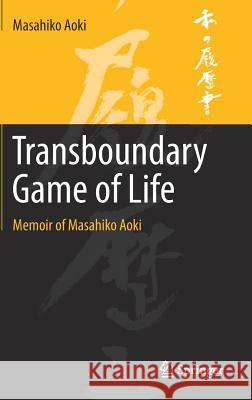Transboundary Game of Life: Memoir of Masahiko Aoki » książka
topmenu
Transboundary Game of Life: Memoir of Masahiko Aoki
ISBN-13: 9789811327568 / Angielski / Twarda / 2019 / 138 str.
Kategorie:
Kategorie BISAC:
Wydawca:
Springer
Język:
Angielski
ISBN-13:
9789811327568
Rok wydania:
2019
Wydanie:
2018
Ilość stron:
138
Waga:
0.40 kg
Wymiary:
23.39 x 15.6 x 1.12
Oprawa:
Twarda
Wolumenów:
01
Dodatkowe informacje:
Wydanie ilustrowane











